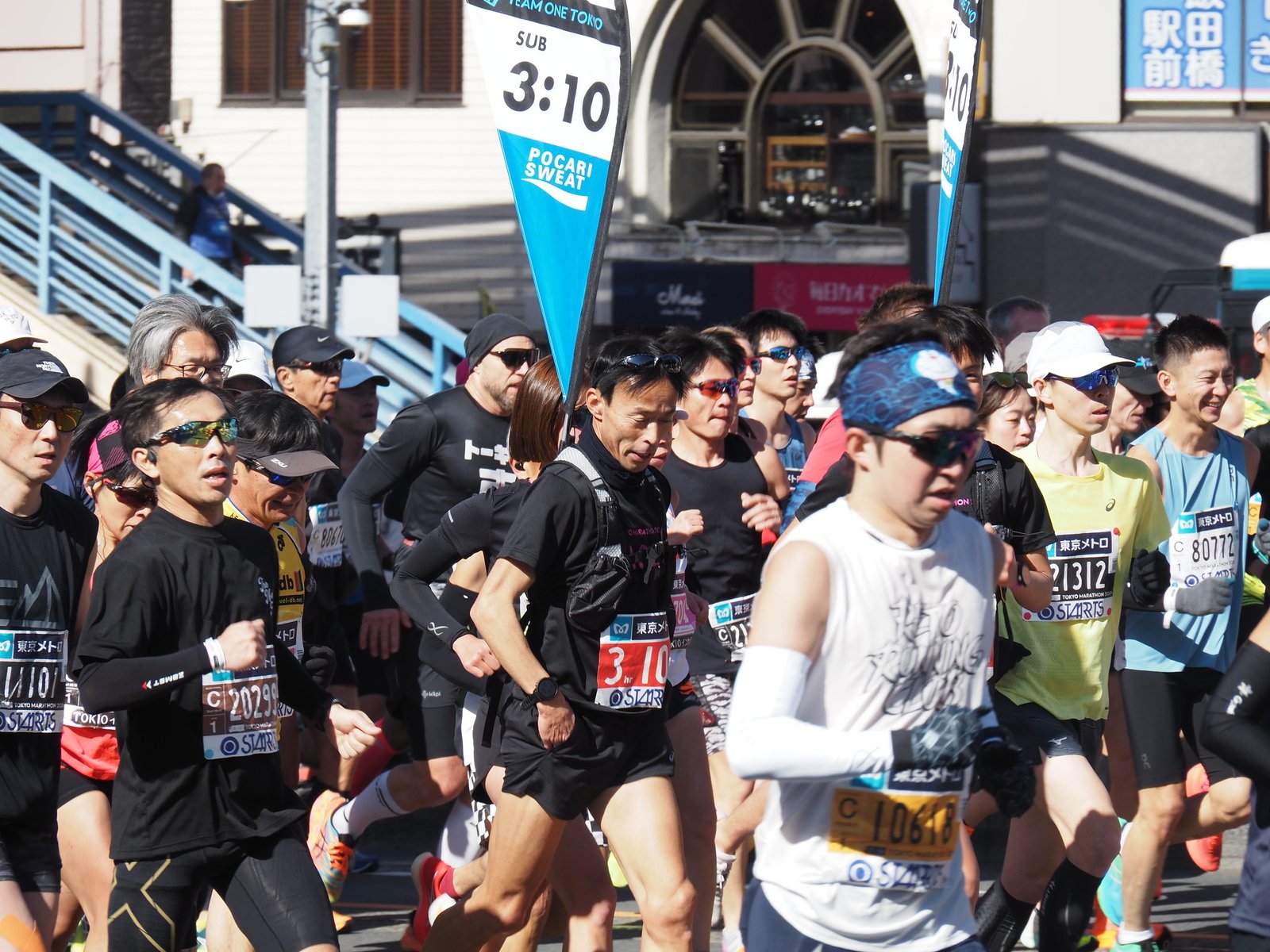Feature image by nakashi on Flickr. CC BY-SA 2.0
The World Marathon Majors certainly have one thing in common — they’re all very popular. This year saw a record number of applicants at many of the world’s largest races.
Whether it’s New York City, Chicago, Boston, London, Tokyo, or Berlin — or now, Sydney — people are banging down the doors trying to get into these races.
But each race also has a unique character. They differ in certain ways, not only in their courses and the finish times, but also in who participates.
I’m working on a series of articles comparing these seven races, and the first article focused on gender distribution. The American races — Chicago, New York, and Boston — had the most balanced fields, while Tokyo had the most male-dominated field.
Next up for consideration: age.
Which of these races has the oldest runners? The youngest? Or are they all about the same?
I published the full analysis on Medium in Runner’s Life, and if you’re not a Medium subscriber you can request a link to get behind the paywall here.
For now, here’s a brief look at some of the data from the full analysis.
Which of the Majors Has the Oldest Runners?
For this analysis, I’m working with data from the each of the seven races covering 2019 to 2024 (2023-24 for Sydney). To get started, I looked at the age of runners in this year’s race – 2024.
For simplicity’s sake, I’ve combined several age groups to create a smaller number of groups – under 30, 30-39, 40-49, 50-59, and 60+. Note that the London Marathon doesn’t differentiate between runners under 40, so they’re all lumped into the “Under 30” category and 30-39 is empty.
Here’s a visual that displays the distribution of finishers at each of the races into these categories.
To understand which of the races has the oldest runners, pay attention to the yellow (60+) and orange (50-59) segments. And when you do, it’s clear that there’s one race that sits apart from all the rest.
At the Tokyo Marathon, close to half of the runners are 50+. The 60+ group is by far the largest of any of the races – both in terms of a percent and in terms of absolute numbers. The 50-59 age group is also larger than any other race.
In terms of absolute numbers, Berlin comes the closest. In part, this is likely because a majority of the finishers at Berlin are men – as they are in Tokyo. And there are more older male runners than women, largely due to historical reasons.
But Berlin saw well over 50,000 finishers this year. Meanwhile, Tokyo had closer to 35,000. Berlin (and London and New York) were much larger overall, but they still failed to meet the numbers of runners 50+ at Tokyo.
In terms of a percent, Boston was the closest. The percent of finishers 60+ at Boston is lower than at Tokyo’s, but it is much higher than at the other races. Same for finishers 50-59. In this case, I’d venture a guess that the Boston qualifying times – which may be relatively easier for older runners – have a role to play.
On the flip side of the spectrum, it is particularly glaring how few finishers under 30 there are at Tokyo. The blue bar is really just a sliver.
What Are Your Reactions and Questions?
Does this finding surprise you? I’d be interested in your own reactions in the comment section.
And do you have any other questions about the age of runners at the seven World Marathon Majors?
In the full analysis on Medium, I also disaggregated the data by gender and I looked at the historical trends from 2019 to 2024. So you might find answers there. If not, leave a comment below.
Over the next few weeks, I’ll be continuing this series comparing the World Marathon Majors. I plan to look at the course elevation profiles, the weather, the fastest finish times, and the relative finish times. If you want to keep up with that, fill out the form below to subscribe to the weekly newsletter.
